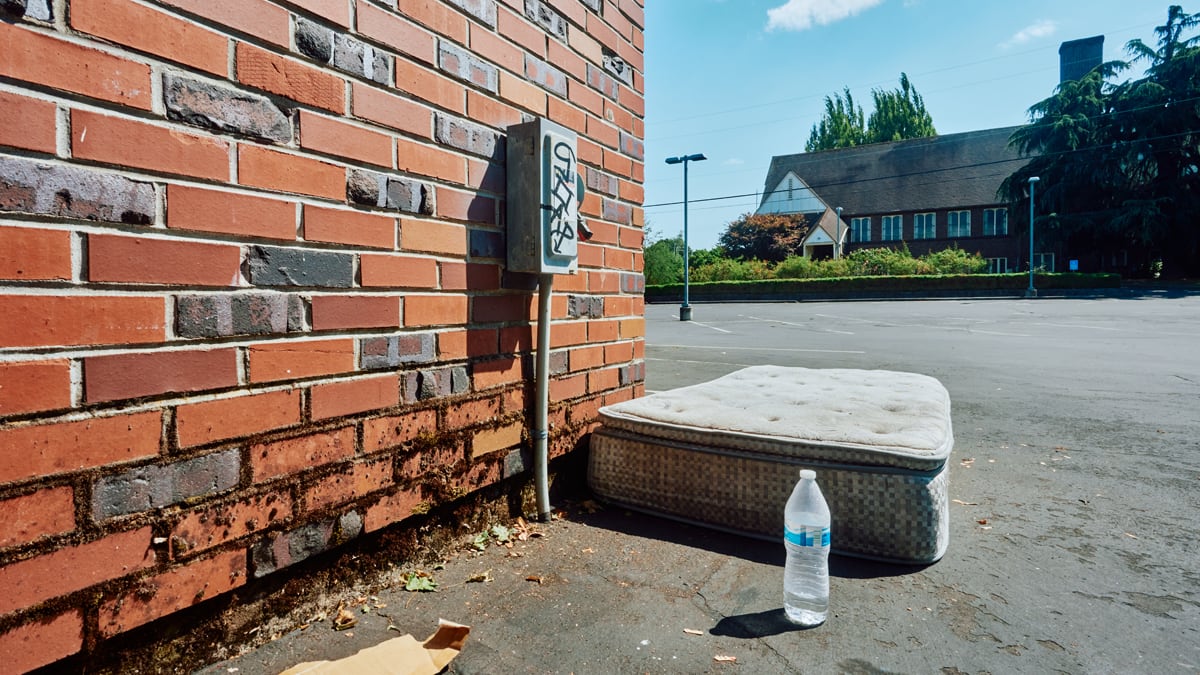Address: 2931 SE Harrison St.
Year built: 1929
Square footage: 26,222
Market value: $11.4 million
Owner: The Church of Jesus Christ of Latter-day Saints
How long it’s been empty: 2 years
Why it’s empty: Mormon flight
For two years, one of Oregon’s oldest Mormon churches has stood empty. After its congregation left four years ago, the Gothic-style Portland Stake Tabernacle in the Richmond neighborhood of Southeast Portland was briefly used solely as a library—until the pandemic closed that too.
There weren’t enough Latter-day Saints to fill its seats, explains Bishop Dave Noble, whose congregation once met in the 2,000-seat building.
They’ve been scared away by the rioting and “political stuff,” Noble says. “They’re moving to Utah and Idaho.”
It’s true, Mormons are fleeing. In the past two years, the church has lost 1.5% of its members in Oregon, which has long been one of the top 10 most Mormon states, according to an analysis of church data by the blog LDS Church Growth.
Built in 1929 by Charles Kaufman, the tabernacle on Harrison is one of the two oldest remaining meetinghouses in the state, Noble says. It’s a victim of the Portland exodus, part of a larger trend of Mormons across the country moving out of urban areas and into the suburbs.
Noble says the building is now for sale, a decision church leaders in Utah made a few months ago. And it’s not the only one. Noble’s congregation has had to move twice—and the Tabor meetinghouse has also closed.
The buildings are among four Mormon churches in the Portland area that face uncertain future, according to church spokeswoman Irene Caso. She blamed “changing church member demographics” and noted the church is “still determining potential uses” for the tabernacle.
Despite the uncertainty, church membership is still growing worldwide, and a 2020 investigation by Truth & Transparency, a nonprofit newsroom, valued the church’s land holdings alone at nearly $16 billion. It also holds around $100 billion in other investments, according to The Wall Street Journal.
Like all religious institutions, the Mormon church has paid no taxes on the property. The new owners could face a hefty tax bill, although if they decide to raze the building and start over, they’ll have limited options—the property is zoned for residential development only.
